Vietnam pledges to effectively implement UN's Zero Hunger Challenge
Vietnam has actively participated in the effective implementation of the Zero Hunger Challenge launched by the United Nations (UN) and the country remains committed to the international community on ensuring there is no famine in Vietnam, Deputy Prime Minister Trinh Dinh Dung has affirmed.
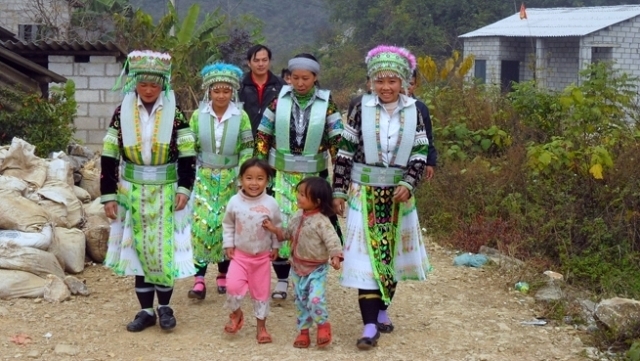
Vietnam has achieved significant achievements in the field of human development, especially in poverty reduction. (Credit: NDO)
The senior government official made the affirmation as he presided over the first meeting of the National Steering Committee for the Zero Hunger Action Programme in Vietnam during the 2016-2025 period. The Steering Committee was established under the Prime Minister’s decision after the senior cabinet leader launched the Zero Hunger Action Programme in Vietnam on January 14, 2015, in response to the UN’s Zero Hunger Challenge initiative.
The national action plan aims to ensure sufficient food and foodstuffs to meet the nutritional needs of all people by 2025, in order to raise the status, intellect and stature of the Vietnamese people, while fulfilling Goal 2 on zero hunger under the Sustainable Development Goals (SDGs) by 2030 that the Government of Vietnam has committed to the UN.
The Action Plan sets five objectives with the specific tasks of ensuring adequate food to ensure nutrition throughout the year; most children under two years of age are no longer malnourished; developing a sustainable food system; the majority of small production models of farmers increasing their productivity and income; and striving to limit wastefulness and losses of food.
Speaking at the session, Deputy PM Dung affirmed that hunger elimination and poverty alleviation is a consistent goal that is being pursued by the Party and State. So far, Vietnam has achieved significant achievements in the field of human development, especially in poverty reduction.
He asked the Ministry of Agriculture and Rural Development (MARD) to cooperate with the relevant ministries and agencies to finalise the regulation for the operation of the Action Plan before issuing it in the first quarter of 2018. Meanwhile, they should actively work with domestic and international organisations in order to mobilise resources for the programme.
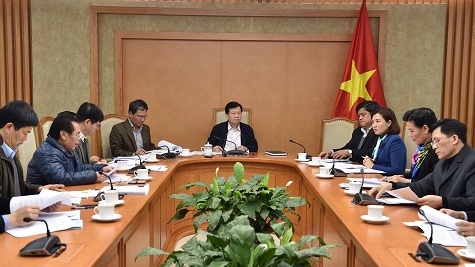
Deputy Prime Minister Trinh Dinh Dung presided over the first meeting of the National Steering Committee for the Zero Hunger Action Programme in Vietnam during 2016-2025, Hanoi, on December 13. (Credit: VGP)
The Deputy PM stressed the important role of grassroots authorities as they are closely associated with local people to effectively implement poverty reduction programmes, adding that the concerned agencies and local authorities should concretise and integrate the objectives under the Zero Hunger National Action Plan into other existing programmes.
The Zero Hunger Challenge was launched by former UN Secretary General Ban Ki-moon in 2012, reflecting five elements from within the SDGs aimed at ending hunger, eliminating all forms of malnutrition, and building inclusive and sustainable food systems.
According to the MARD, Vietnam is one of the countries that has achieved remarkable results in reducing the number of people suffering from hunger from 46.9% (32.16 million people) during 1990-1992 to 9% (8.01 million people) during 2010-2012 and achieving the SDG No. 2, aimed at halving the number of hungry people by 2015 and basically addressing hunger by 2020 (according to assessment from the Food and Agricultural Organisation of the UN).
However, child malnutrition is still high in comparison with the World Health Organisation’s classification and there are significant differences between regions. In particular, stunting - affecting the height and stature of the Vietnamese population, is still high (24.6% in 2015) and uneven among regions across the country. There are 12 provinces with high stunting rates of over 30%, concentrated in three regions: the Central Highlands, the North Central and the mountainous northern area. The lack of micronutrients (iron, iodine and vitamin A deficiencies) still requires attention, especially for disadvantaged and remote areas with high micronutrient deficiencies./.
VNF/NDO
Recommended
 National
National
Vietnam News Today (May 13): Vietnam Maintains High Human Development Index Despite Global Slowdown
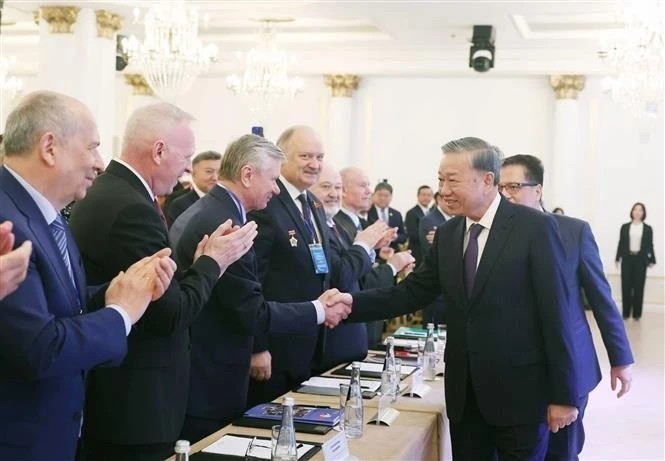 National
National
Vietnam News Today (May 12): Party General Secretary Meets With Russian Experts, Intellectuals
 National
National
Vietnam News Today (May 11): Vietnam, Austria to Boost Cooperation in High-Tech Development, Innovation
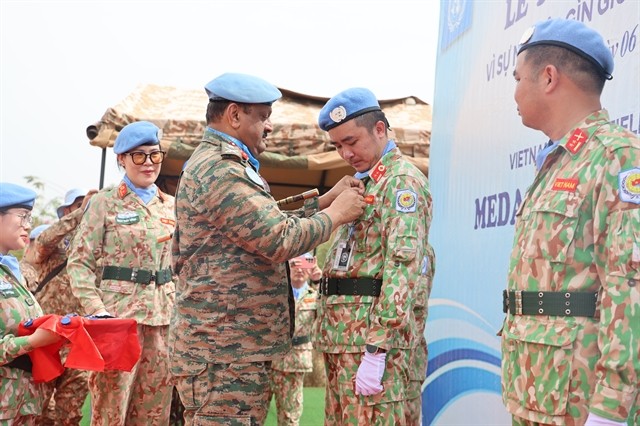 National
National
Vietnam News Today (May 10): Vietnamese Peacekeepers Honored with UN Medal in South Sudan
Popular article
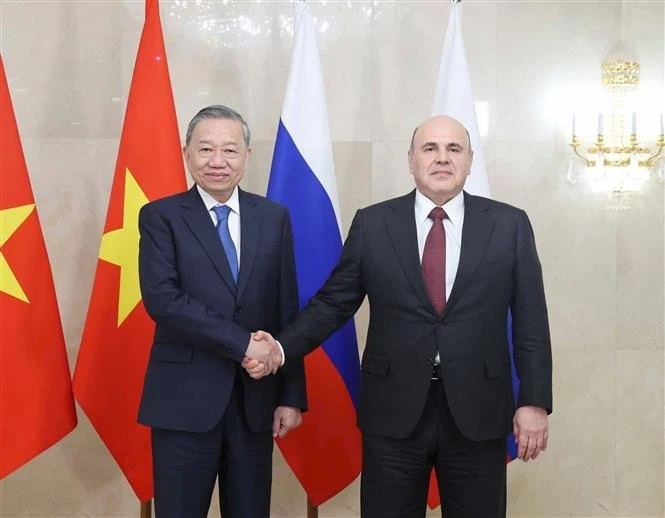 National
National
Vietnam News Today (May 9): Vietnam Ready to Work With Russia to Elevate Relations
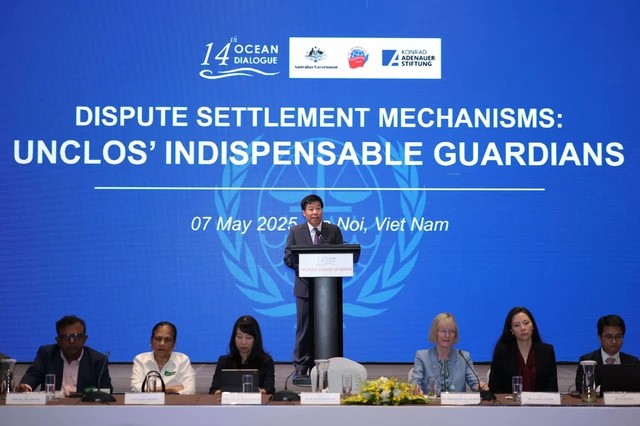 National
National
Vietnam News Today (May 8): Vietnam Remains Committed to UNCLOS
 National
National
Vietnam News Today (May 7): Vietnam Hosts Over 7.67 Million International Visitors in First 4 Months
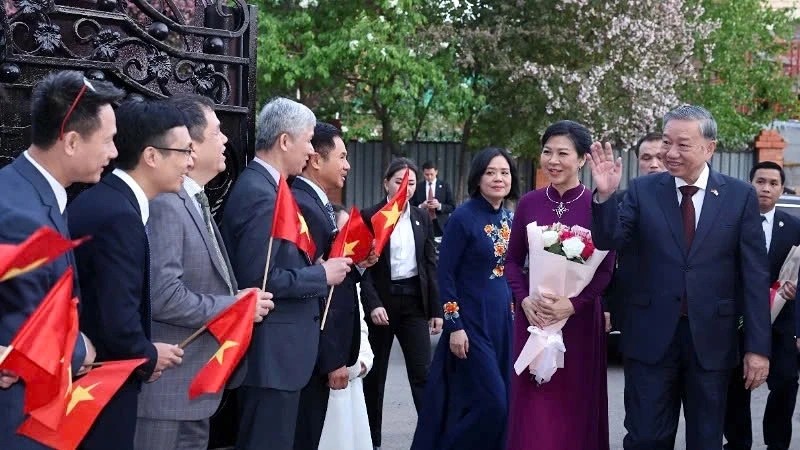 National
National





